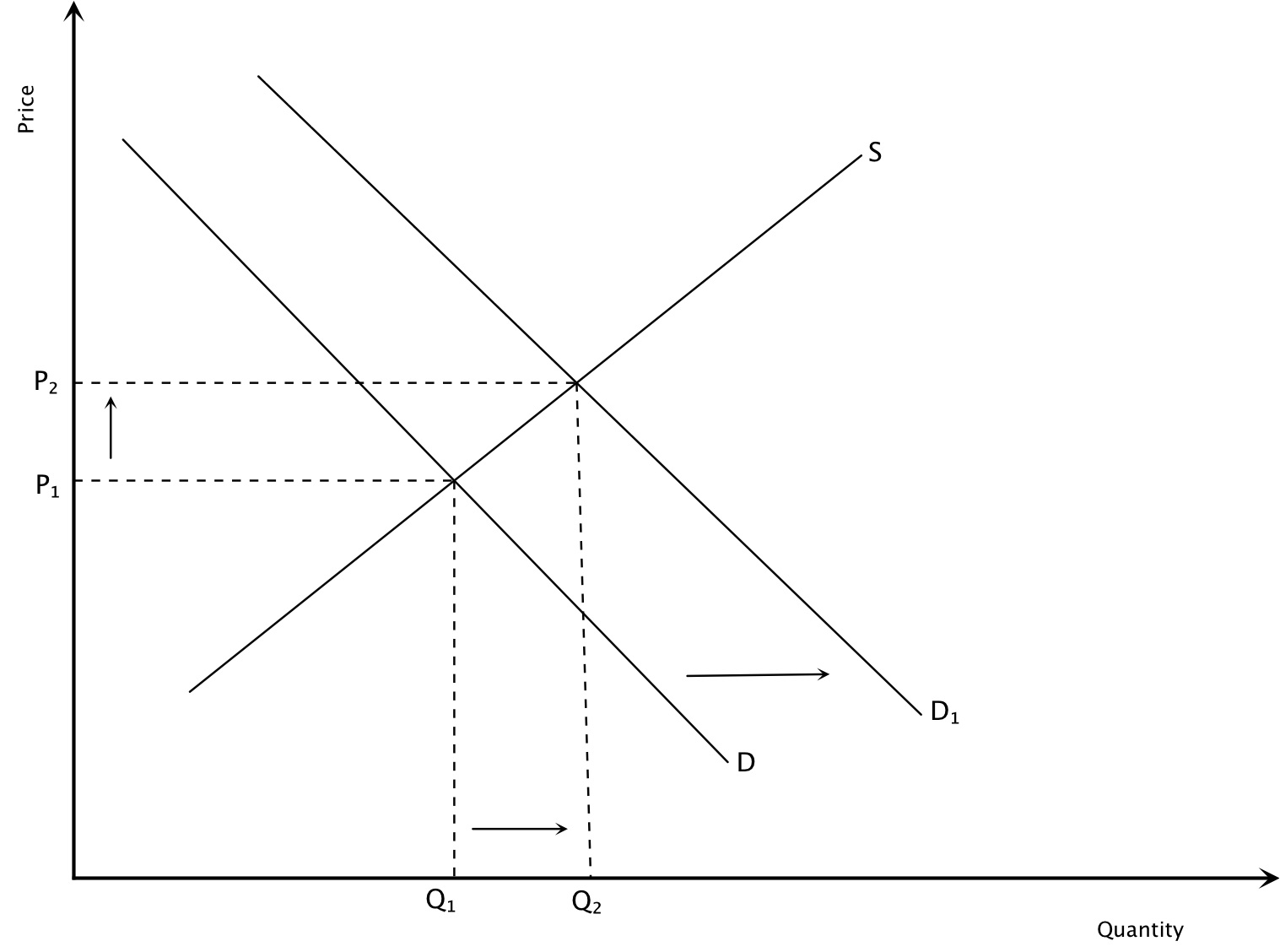According to my common knowledge, the price should drop when supply increases. Why doesn't the price of gold drop slowly as more gold is produced from mining?
2 Answers
You cannot reason directly from a price change. Prices may increase because supply has fallen or demand has changed. In general we can't distinguish between the two unless we know something about the demand and supply curve in particular and not just prices and quantities.
For example, when demand increases (the demand curve shifts to the right but supply curves are held fixed) this increases demand for gold at all prices. Which means that equilibrium quantity increases (more gold is produced) as well.
But that gold doesn't decrease prices. The only reason more gold was produced was because prices were higher. If prices fell in response to higher quantity produced the producers (who have the same supply function by assumption) would not produce more. So in response to a demand shock for gold prices increase in order to clear the market for gold. Otherwise there is not enough gold at the old prices.
To be fair, the price of gold remained quite stationary from 1980-around 2005 after which it rose rapidly and has now fallen for several years. Whether the price will drop to its old level remains to be seen). This is the market defining the value of a resource, i.e. consumers believing in an inherent value in gold and the fact that gold has some value even if more of it is mined daily and that the amount of gold in the market won't increase rapidly, so it can be sold for similar value in the future.
Basic economic theory states exactly what you're thinking (supply rises => prices should drop). This should happen if a market had perfect competition and automatically reached a theoretical equilibrium. However, what you should consider is that in a real world economy such a perfect market is hard to find and, in a market with a low number of firms, the suppliers push the price up to gain a higher portion of the total economic surplus (https://en.wikipedia.org/wiki/Economic_surplus). As long as there is demand for a good with higher prices, there is an incentive for the suppliers to (slowly) increase the price and supply.
